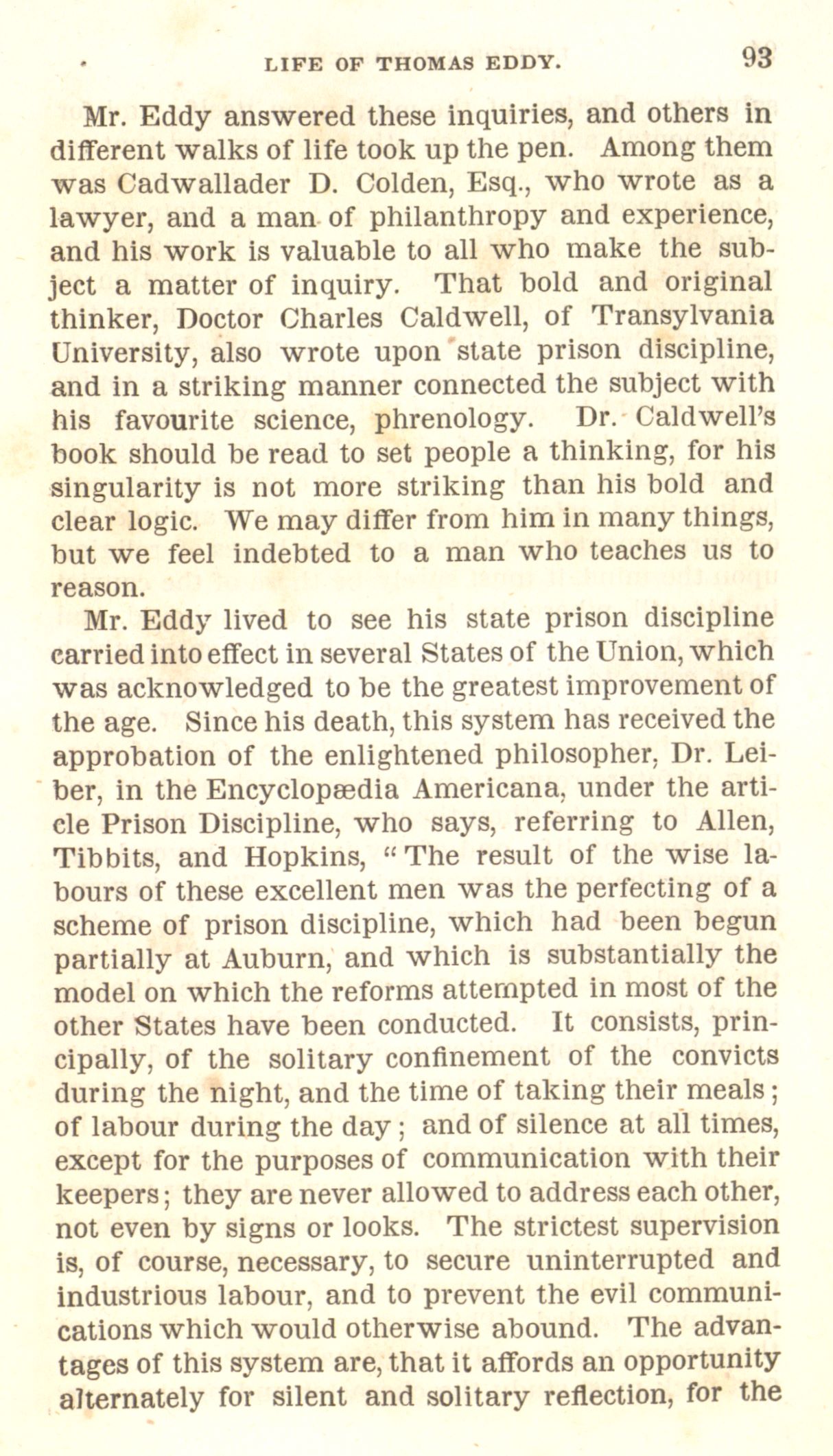Person Information
different walks of life took up the pen. Among them
was Cadwallader D. Colden
Person Information
lawyer, and a man of philanthropy and experience,
and his work is valuable to all who make the sub-
ject a matter of inquiry. That bold and original
thinker, Doctor Charles Caldwell
Person Information
University, also wrote upon state prison discipline,
and in a striking manner connected the subject with
his favourite science, phrenology. Dr. Caldwell
Person Information
book should be read to set people a thinking, for his
singularity is not more striking than his bold and
clear logic. We may differ from him in many things,
but we feel indebted to a man who teaches us to
reason.
Person Information
carried into effect in several States of the Union, which
was acknowledged to be the greatest improvement of
the age. Since his death, this system has received the
approbation of the enlightened philosopher, Dr. Lei-
ber, in the Encyclopaedia Americana, under the arti-
cle Prison Discipline, who says, referring to Allen
Person Information
Tibbits
Person Information
Person Information
The result of the wise la-
bours of these excellent men was the
perfecting of a
scheme of prison discipline, which had been
begun
partially at Auburn
Place Information
model on which the reforms attempted in most of the
other States have been conducted. It consists, prin-
cipally, of the solitary confinement of the convicts
during the night, and the time of taking their meals;
of labour during the day; and of silence at all times,
except for the purposes of communication with their
keepers; they are never allowed to address each other,
not even by signs or looks. The strictest supervision
is, of course, necessary, to secure uninterrupted and
industrious labour, and to prevent the evil communi-
cations which would otherwise abound. The advan-
tages of this system are, that it affords an opportunity
alternately for silent and solitary reflection, for the

